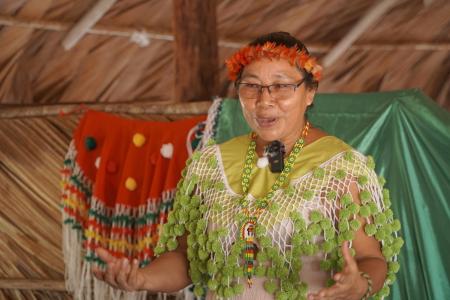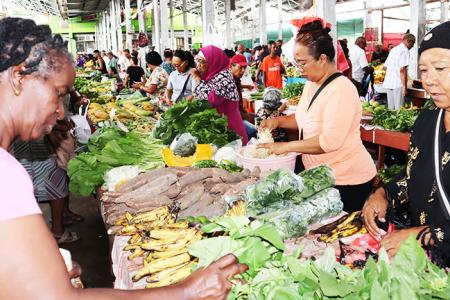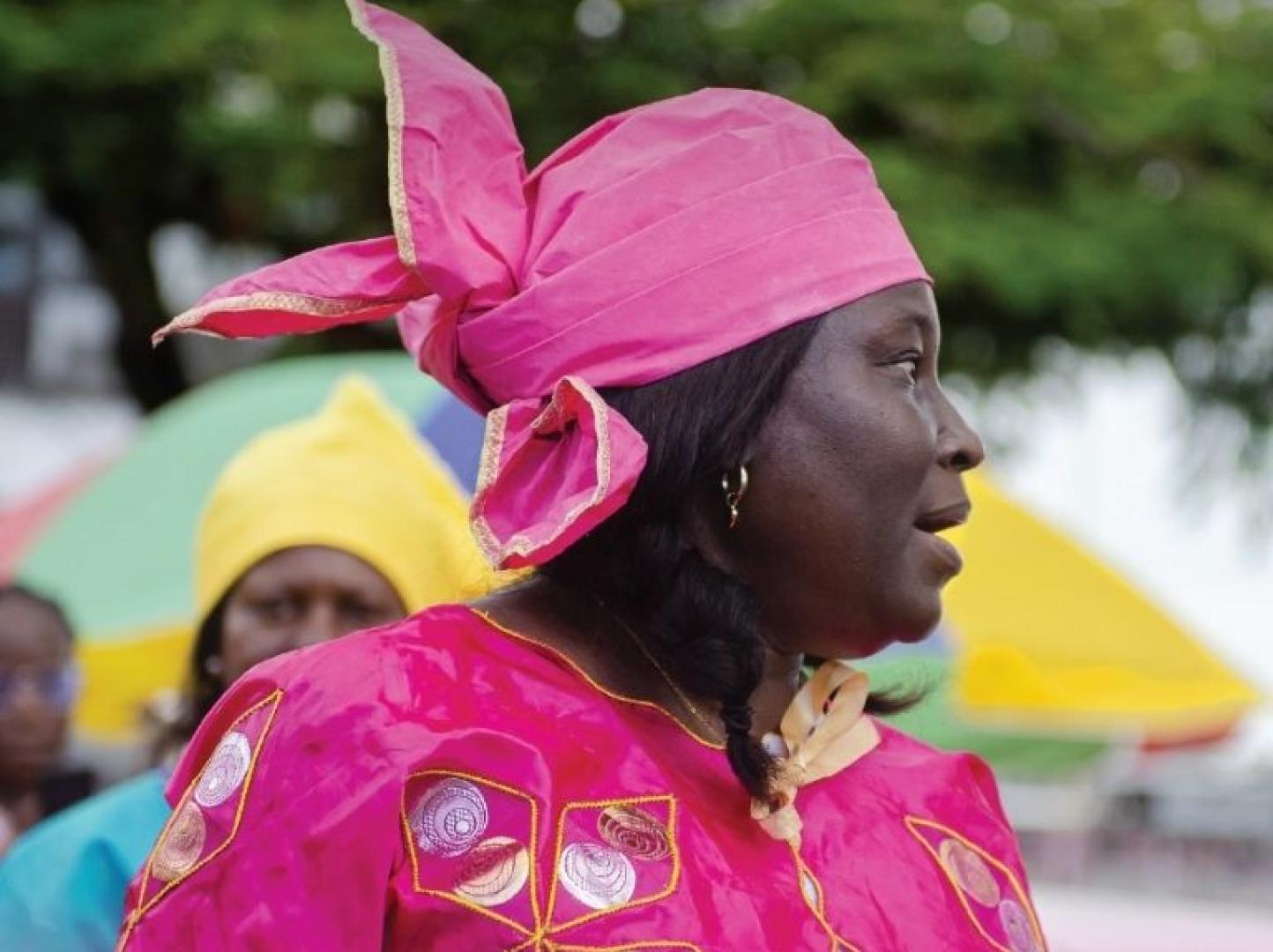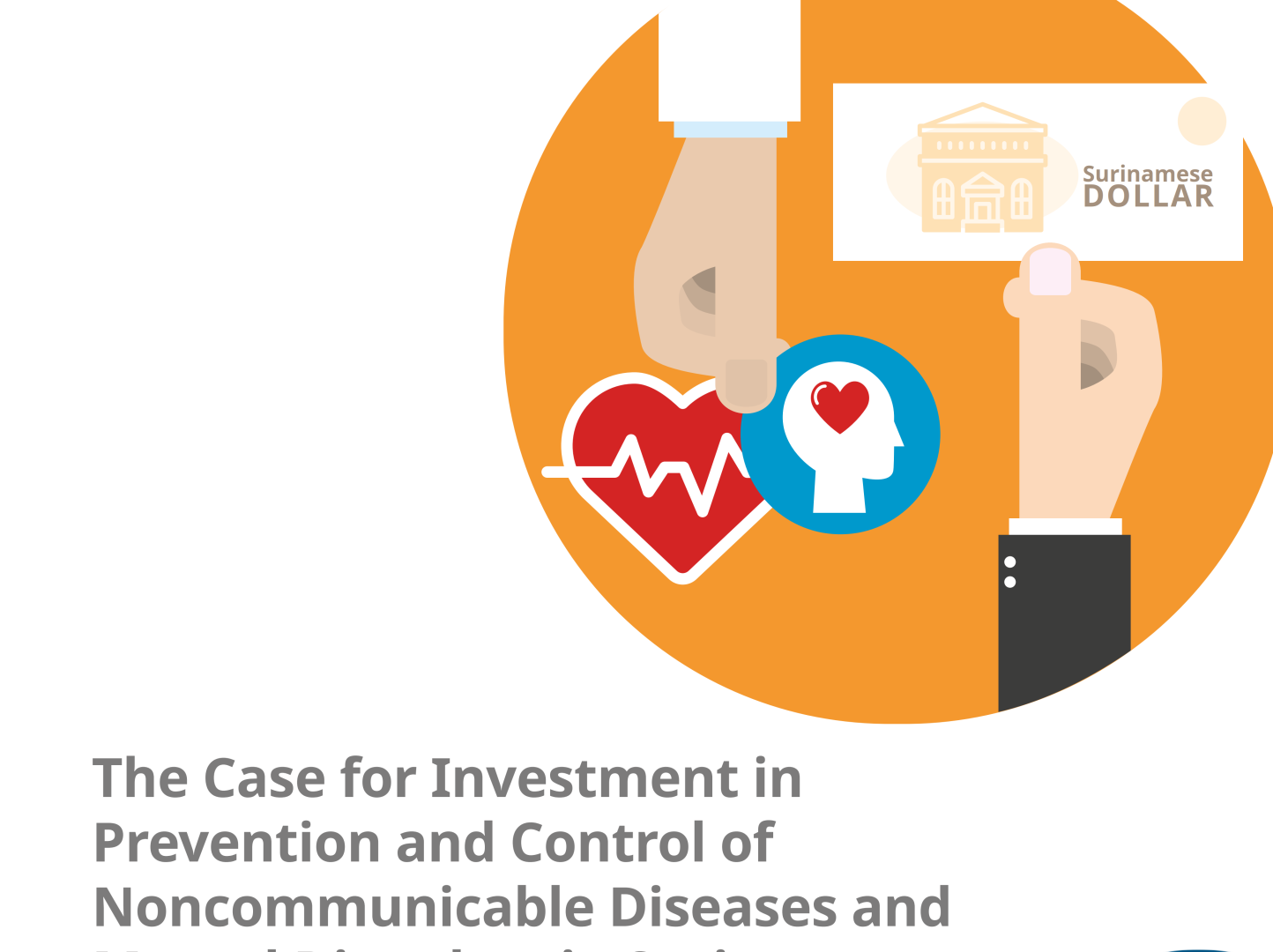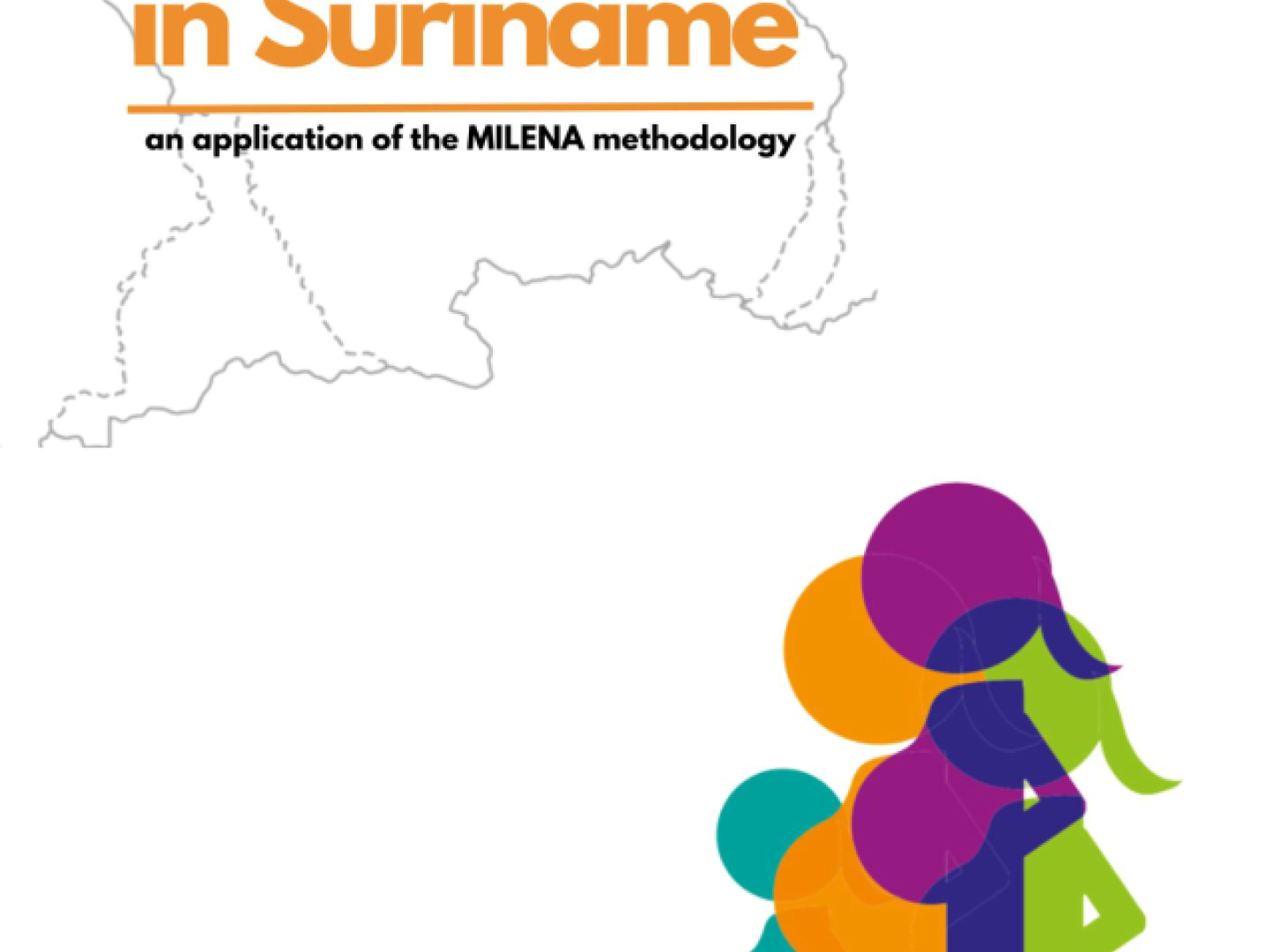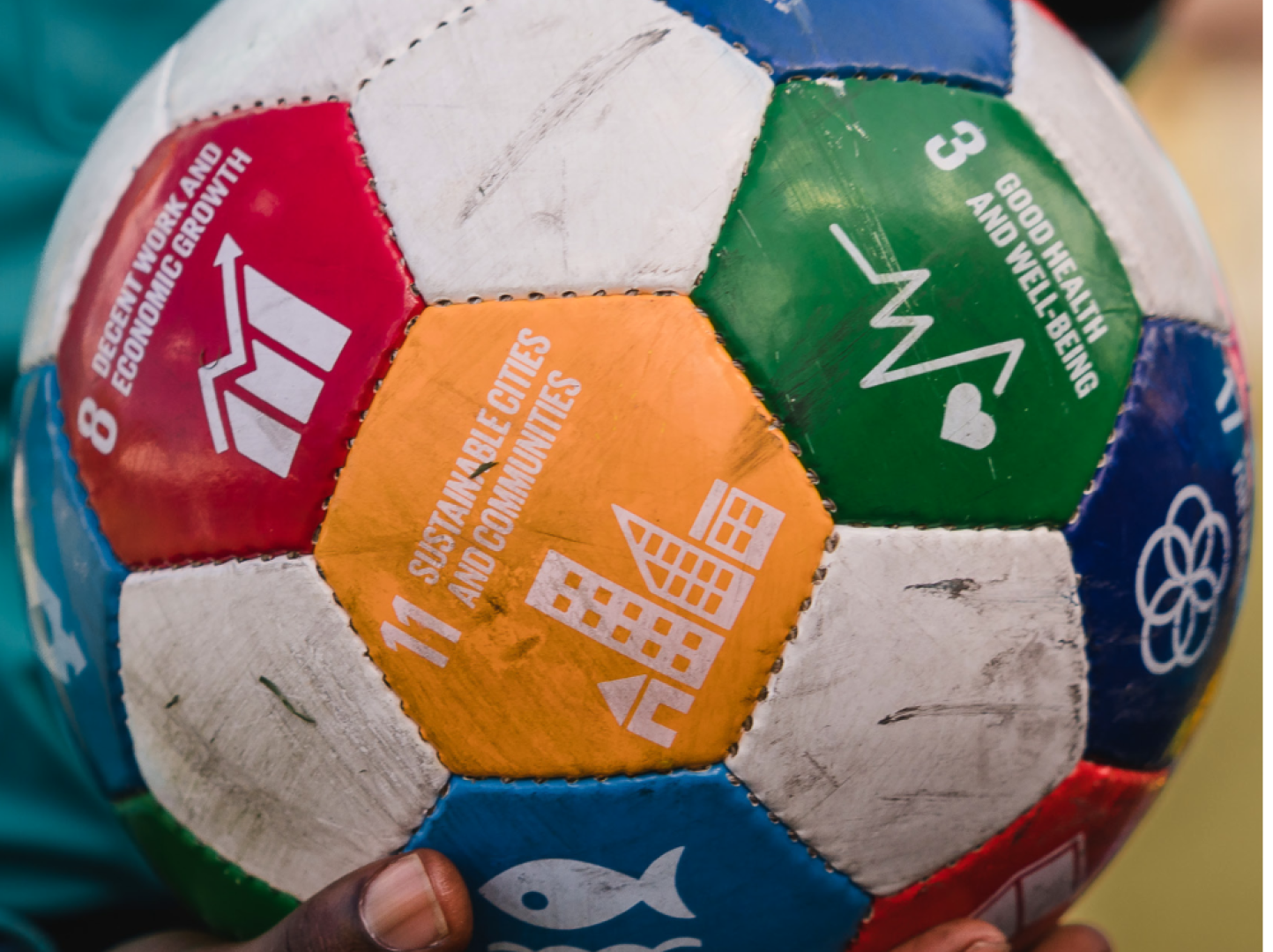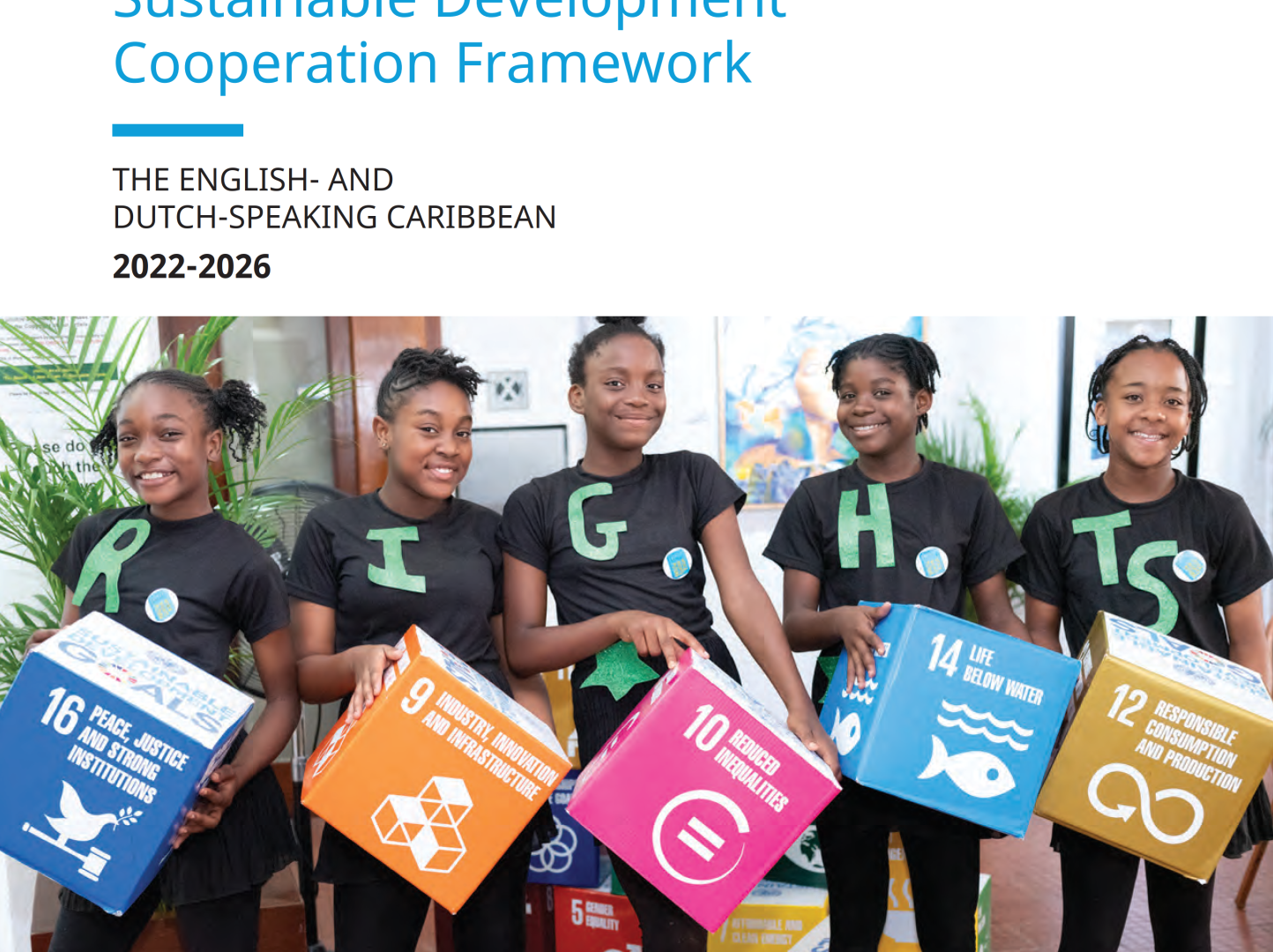Latest
Story
25 February 2026
Suriname builds resilience through early warning
Learn more
Story
25 February 2026
Surinamese Nursing Educators Embark on Transformative Exchange in Belgium
Learn more
Press Release
09 October 2025
Suriname launches Collateral Support Facility to empower pineapple farmers
Learn more
Latest
The Sustainable Development Goals in Suriname
The Sustainable Development Goals are a global call to action to end poverty, protect the earth's environment and climate, and ensure that people everywhere can enjoy peace and prosperity. These are the goals the UN is working on in Suriname:
Publication
30 April 2025
United Nations Annual Results Report 2024
The United Nations Annual Results Report 2024 on the work of United Nations system in Suriname.This report showcases the collective contributions of 16 UN agencies, funds, and programmes working to advance Suriname’s sustainable development. With its abundant natural resources and emerging economic potential, Suriname holds significant promise. Realizing a modern and prosperous future will depend on coordinated action by the Government, private sector, and civil society, supported by strong partnerships and proven technical solutions.
1 of 5
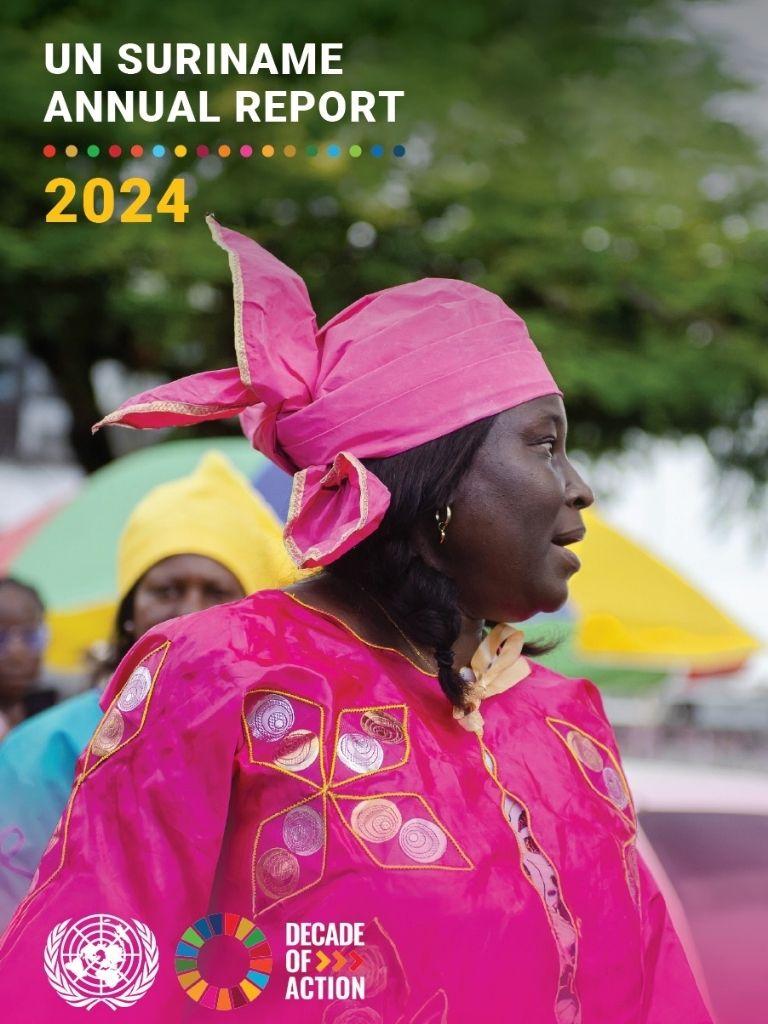
Publication
02 July 2024
United Nations Suriname 2023 Annual Results Report
The United Nations Annual Results Report 2023 on the work of United Nations system in Suriname.This report highlights the achievements of over 14 UN agencies, funds, and programmes supporting Suriname’s sustainable development. Suriname, rich in natural resources and on the brink of economic growth, offers many opportunities. However, achieving a modern, prosperous future requires collaborative efforts from the Government, private sector, and civil society, along with partnerships and tested technical solutions.
1 of 5
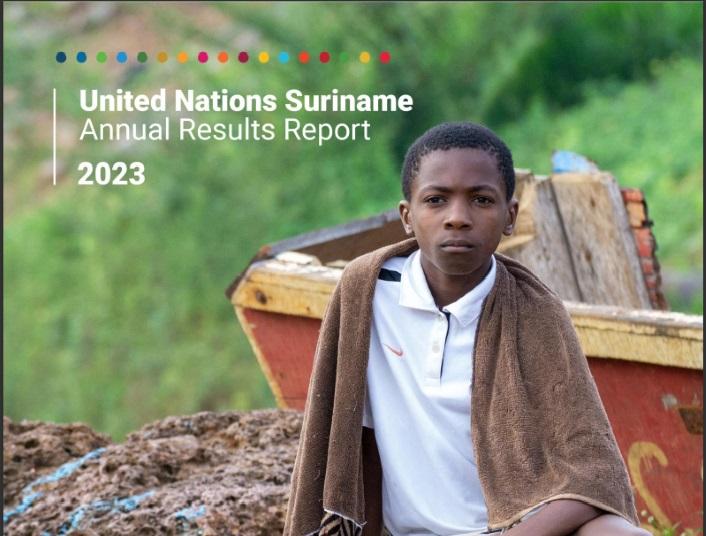
Story
06 February 2024
Indigenous and Tribal People of Suriname Welcome UN Women Multi-Country Office (MCO) Caribbean to their Villages: One Step Closer to Implementing Women’s Empowerment and Livelihood Programme
November 28, 2023 - Under a programme to build resilience and improve livelihoods, officers of UN Women MCO Caribbean and the Food and Agriculture Organisation (FAO) delegation were recently welcomed by Indigenous and Tribal People (ITP) in the villages of Matta and Atjoni. The mission visit was under the SDG Joint Fund Programme “Leaving No One Behind, Building Resilience, and Improving Livelihoods of Indigenous and Tribal Peoples (ITPs) in Suriname.”
The SDG Fund Joint Programme is aimed at integrated policy solutions to enable inclusion, build resilience, and improve livelihoods among Indigenous and Tribal Peoples (ITPs) in Suriname.
The UN Women component is focused on improved livelihoods and enhanced food security of women and girls within the targeted ITPs communities by 2023. It’s meant to help the communities restart or find new income-generating activities given the economic and social impact of the COVID-19 pandemic, to develop their financial resilience, and safeguard food production and food security. Skills training in more productive and sustainable agricultural practices and coaching will be provided to the communities.
The joint programme will also address the feminization of poverty by supporting rural women to become small-holder farmers and agri-preneurs. This Integrated Rural Development Initiative will also address the multi-dimensionality of gender equality issues in this sector: unequal access to land and land/business ownership; discrimination in access to resources, neglected disaster and climate change proofing of women livelihoods in this sector; gender-blindness of public policy, and key skills development for growth and income security.
Ahead of the visit, the delegation met with village chiefs and council members of VIDs, adhering to the principles of Free, Prior and Informed Consent (FPIC), which is essential for collaborative efforts with ITPs.
The mission included a visit to Matta, an Indigenous Village and to Atjoni, a tribal village. Needs assessment focus groups were conducted with the ITPs to gain insight to inform the project design and implementation schedule.
The Matta people welcomed the delegation into their communal hut, which became a forum for dialogue, where the purpose of the joint programme was discussed, and the needs assessment conducted, fostering a deeper understanding of the specific requirements of ITP women and girls.
The field visit to Matta featured not only discussions but also immersive experiences, including a tour of a pineapple field and the showcasing of Indigenous craft and jewelry, available for purchase.
The second field visit was to the Tribal Village of Atjoni for a needs assessment, where the team observed challenges such as a river with low levels of water, which impacts the tribe’s ability to access drinking water.
The delegation also met with representatives from the Ministry of Regional Development and Sports, including Permanent Secretaries from relevant Directorates as part of a comprehensive approach to learning about and providing support for the specific needs of ITP women and girls.
The next steps are to compile the data and triangulate it against data gathered from previous stakeholder consultations. These findings would be presented to the VIDS and KAMPOS steering committee for feedback, fine tuning and approval.
This needs assessment marks a crucial step toward realizing impactful and sustainable initiatives for the welfare of Suriname's Indigenous and Tribal People.
1 of 5
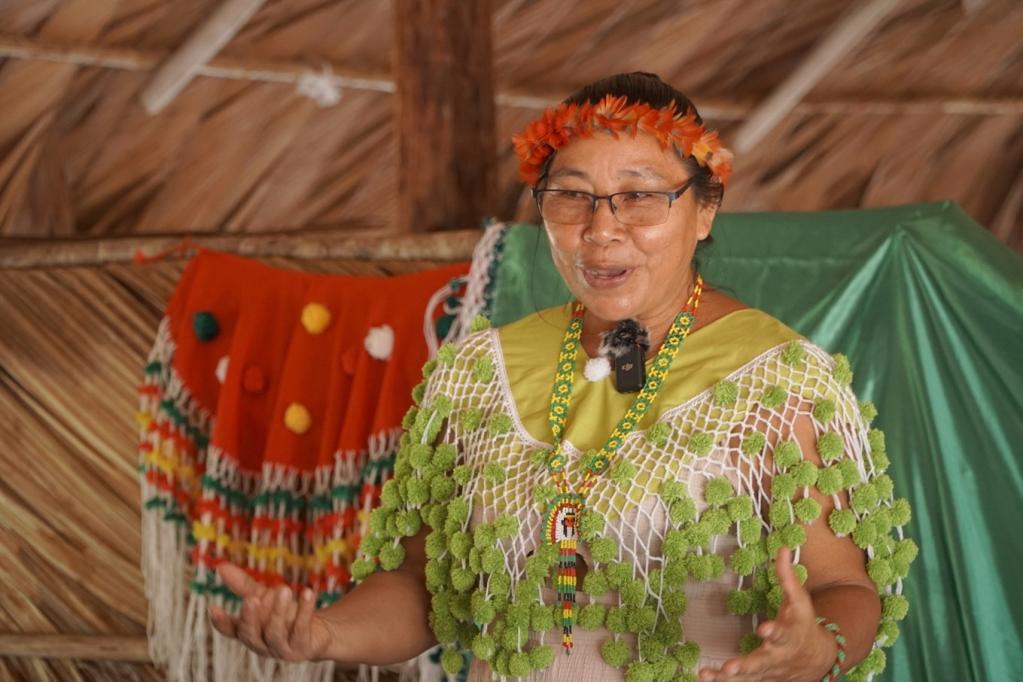
Press Release
28 February 2024
United Nations Suriname Partners with Private Sector Leaders to Advance Sustainable Development Goals
The meeting opened with insightful presentations from representatives of various businesses, highlighting their efforts and commitment to sustainability. Dave Boucke, CEO of the Torarica Group, shed light on the Green Key certification, emphasizing its alignment with the SDGs and Torarica's strategic goals. He underscored the company’s comprehensive approach to sustainability, encompassing waste management, energy conservation, and community engagement.Farsi Khudabux, General manager of the Baitaly Group, underscored the company’s efforts to align with the SDGs across its operations, focusing on poverty alleviation, infrastructure development, and corporate social responsibility initiatives. Khudabux urged fellow CEOs to take proactive steps in shaping Suriname's future and emphasized the pivotal role of the private sector in driving sustainable development.Kamlesh Ganesh, Deputy Director of the Suriname Trade and Industry Association (VSB) reiterated the crucial role of the private sector in achieving the SDGs, emphasizing the need for awareness, alignment, action, and accountability within organizations. Ganesh outlined VSB's initiatives to promote sustainability and encouraged companies to adopt a holistic approach to sustainability.Angelic del Castillo, Chair of Suriname’s SDG Commission, provided insights into the platform's role in monitoring national policies, strengthening accountability mechanisms, and fostering dialogue between government and civil society. Del Castillo emphasized the platform's commitment to inclusivity and transparency in achieving the SDGs.The United Nations Resident Coordinator for Suriname, Joanna Kazana, commended the collaborative efforts of all stakeholders in driving sustainable development in Suriname. While explaining the UN's multifaceted approach to advancing the SDGs, Miss Kazana highlighted initiatives aimed at environmental sustainability, including the reduction of mercury in artisanal mining, promotion of sustainable forestry management, and support for renewable energy projects. The UN's healthcare initiatives focus on improving access to essential medicines, promoting reproductive health, and addressing the needs of marginalized communities.Education is another key priority for the UN, with programs aimed at enhancing access to quality education, promoting inclusive learning environments, and supporting skills development for youth. Gender equality remains a central focus, with efforts to empower women and girls, promote women's leadership, and address gender-based violence.Additionally, the UN is actively engaged in promoting social inclusion and addressing the needs of vulnerable populations, including persons with disabilities, refugees, and migrants. Through advocacy, capacity-building, and policy support, the UN seeks to create a more inclusive and equitable society for all Surinamese citizens.The meeting concluded with a call to action, urging participants to continue their efforts towards sustainability and collaboration. In closing, the CEO Breakfast Meeting served as a testament to Suriname's collective commitment to sustainable development and partnership. By harnessing the power of the private sector, government institutions, and civil society, Suriname is poised to achieve its long-term vision of prosperity, peace, and sustainability.
1 of 5
Press Release
27 June 2024
UNDRR: Suriname advances national disaster risk reduction strategy to ensure alignment with its national adaptation plan
Click here to read full article: Suriname advances national disaster risk reduction strategy | UNDRRSource(s): United Nations Office for Disaster Risk Reduction – Regional Office for the Americas and the CaribbeanUNDRR Bonn OfficeCaribbean Disaster Emergency Management AgencyUniversity of the West Indies - St. Augustine, theUnited States Agency for International Development (USAID)
1 of 5
Story
25 February 2026
Surinamese Nursing Educators Embark on Transformative Exchange in Belgium
Paramaribo, 20 February 2026 – A delegation of four nursing educators from Suriname has travelled to Belgium to participate in a professional knowledge exchange programme aimed at strengthening nursing education and healthcare training in Suriname. The exchange is organized within the framework of the Skills Mobility Partnership (SMP) between Suriname and Belgium, co-funded by the Belgian Immigration Office and the European Union, and implemented by the International Organization for Migration (IOM) in close collaboration with the Ministry of Health of Suriname.Prior to their departure, IOM Suriname and the Ministry of Health hosted a brief orientation meeting and photo opportunity with the participating educators. The study visit to Belgium marks an important milestone in this bilateral collaboration, designed to address the healthcare needs of both countries and promote sustainable capacity building.The Surinamese delegation includes representatives from:· Quality College Suriname (QCS)· UTOS· IOM SurinameIn Belgium, they are welcomed by:· CVO MIRAS· HIVSET· IOM Belgium & LuxembourgDuring the study visit, educators from Suriname are exchanging expertise with their Belgian counterparts on curriculum development, clinical training methods, simulation techniques, and student supervision. They are also gaining insights into the Belgian healthcare system through a series of site visits, including hospitals, family care organisations, and elderly care facilities.The knowledge gained through this exchange will contribute to strengthening nursing education in Suriname and enhancing the preparation of future healthcare professionals to respond to evolving healthcare needs.The organization of this exchange within the framework of the SMP Belgium–Suriname reflects a shared commitment to sustainable healthcare development and a mutually beneficial partnership. By focusing on knowledge exchange between educators, the programme supports capacity building within Suriname’s healthcare system and alignment with international standards, thereby preparing the ground for the mobility of healthcare professionals in the future.The programme is supported by the Belgian Immigration Office and the European Union, underscoring the strength of this partnership and the shared commitment to ethical and sustainable skills mobility.IOM remains committed to facilitating ethical, sustainable skills mobility partnerships that strengthen institutions and create lasting impact and mutually beneficial outcomes for the participating countries.For more information on this programme and other activities of IOM Suriname, please contact Astrano Jabini at ajabini@iom.int.
1 of 5
Story
25 February 2026
Suriname builds resilience through early warning
The country is committed to align institutions, improving risk information, and expanding early warning so that alerts translate into early action to protect people, infrastructure, livelihoods and development gains.Suriname sets a practical starting point for this agenda: expanding access to disaster risk data and advancing a comprehensive multi-hazard early warning roadmap through the Early Warnings for All (EW4All) initiative. This direction brings institutions and partners around one shared pathway, strengthening what exists, identifying gaps, and defining the actions and resources required to deliver early warning for all.EW4All helps Suriname connect the full early warning chain, from understanding the risk to monitoring and forecasting to communication, preparedness and response, so communities receive timely information, understand it, and act upon it. The process yields a concrete outcome: a national gap analysis and a costed implementation plan that supports coordinated delivery and helps accelerate financing for inclusive, multi-hazard early warning.This nationally led effort will also strengthen how coordination works in practice. Disaster risk reduction responsibilities sit across ministries and agencies, and progress depends on collaboration that is steady and predictable. Suriname seeks to reinforce institutional arrangements that keep risk reduction integrated into policies, planning and investment decisions.Suriname will also advance toward stronger measurement and accountability by preparing to begin reporting to the Sendai Framework Monitor. This effort will support evidence-based decision-making and enhance the national picture of impacts and progress. Over time, strengthening how risk information is organized and used supports smarter planning and more risk-informed development choices.The country’s direction is reinforced through broad engagement across government, technical services and the private sector, bringing together perspectives that are essential to a whole-of-society approach. This multi-stakeholder approach helps to set an important and concrete agenda for 2026 to strengthen access to risk data and harness multi-sectoral support to advance early warning systems.“Disaster risk reduction is about building the systems that keep development safe, especially by connecting early warning to early action,” said Nahuel Arenas, Chief of UNDRR’s Regional Office for the Americas and the Caribbean. “When risk information, clear roles and preparedness work together, countries move from responding to hazards to managing risk in a way that saves lives and reduces losses.”“The United Nations system has been working closely with the Government of Suriname introducing innovations and new technologies to manage natural hazards and climate change. We are committed to supporting Suriname’s nationally led resilience agenda—strengthening institutions, advancing Early Warnings for All, and deepening regional cooperation so communities and development gains are protected across Suriname and the wider Caribbean,” said Joanna Kazana, UN Resident Coordinator for Suriname, Trinidad and Tobago, Aruba, Curaçao and Sint Maarten.As Suriname embarks in this pathway there are ample opportunities to deepen regional cooperation, share experience with neighboring countries, learn from peers, and shape collective solutions across the Caribbean and the wider Americas.
1 of 5
Story
21 January 2025
Suriname one step closer to establishing just transition policy
Suriname has taken its first step toward establishing a just transition policy through a tripartite workshop held on December 2-3, 2024, in collaboration with the International Labour Organization (ILO). The event brought together representatives from government ministries, employers' organizations, trade unions, and other stakeholders to develop labour legislation supporting the country's green growth ambitions. Participants built on earlier discussions and training on sustainable development and just transition principles, focusing on climate change, social dialogue, and green economy initiatives. The workshop culminated in a joint commitment to policy frameworks and cooperation, paving the way for a dedicated tripartite committee to guide the policy’s development. This initiative aligns with the Decent Work Country Program III (2023-2026) and Suriname’s National Green Development Strategy, marking a significant milestone in the nation’s pursuit of sustainable and equitable economic growth. Full article: Suriname one step closer to establishing just transition policy | International Labour Organization
1 of 5
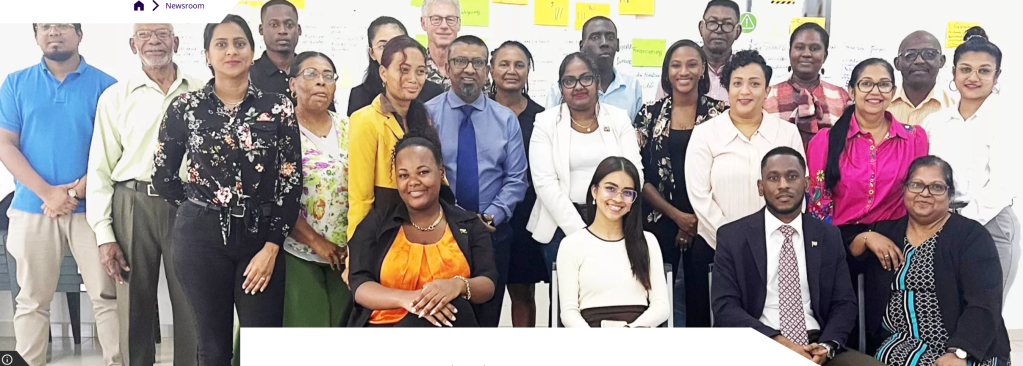
Story
29 March 2024
Empowering Women: Mahalia Somedjo – Bridging the Path to Progress
As the coordinator of the Education & Training department, she plays a pivotal role in promoting sexual and reproductive health within the community. Her work brings her into contact with diverse groups, including men, women, couples, and youth.For over 20 years, Mahalia Breidel has been instrumental in implementing impactful initiatives in Comprehensive Sexuality Education (CSE) through the Lobi Foundation, contributing to informed decision-making regarding sexual and reproductive health. Several of these initiatives have been executed in collaboration with the United Nations Population Fund (UNFPA) in recent years. Last year, multiple Out-of-School CSE training sessions were conducted, reaching approximately 102 individuals, including adolescent mothers and fathers, parents and caregivers, and teachers. With UNFPA's support, Mahalia has been able to contribute to the development of youth and women, accelerating the pace of progress.Mahalia strongly believes in the importance of investing in women, aligning with this year's theme of the UN 68th Commission on the Status of Women (CSW 68): "Invest in Women: Accelerate Progress." For her, it's evident that the well-being of women is closely linked to the strength and stability of society. She emphasizes that women play a crucial role in families and communities, highlighting the essential need to invest in them to achieve sustainable progress.One of the greatest challenges Mahalia sees in investing in young mothers is addressing structural barriers that hinder them from realizing their full potential. Poverty, violence, and a lack of knowledge about sexual and reproductive health persist as obstacles that need to be overcome. Moreover, there's a cultural stigma discouraging women from pursuing higher ambitions.Nevertheless, Mahalia remains optimistic about the positive developments that can arise from investing in women and girls. She believes that breaking the cycle of dependency and promoting female leadership will not only benefit individuals but also strengthen the entire community. For her, a female president is not a utopia but an achievable goal worth pursuing.As an advocate for gender equality and empowerment, Mahalia continues her mission to support and inspire women and girls to reach their full potential. Her dedication and determination are a source of inspiration for many, and her vision of a just and inclusive society continues to guide her work at the Lobi Health Center Foundation.
1 of 5
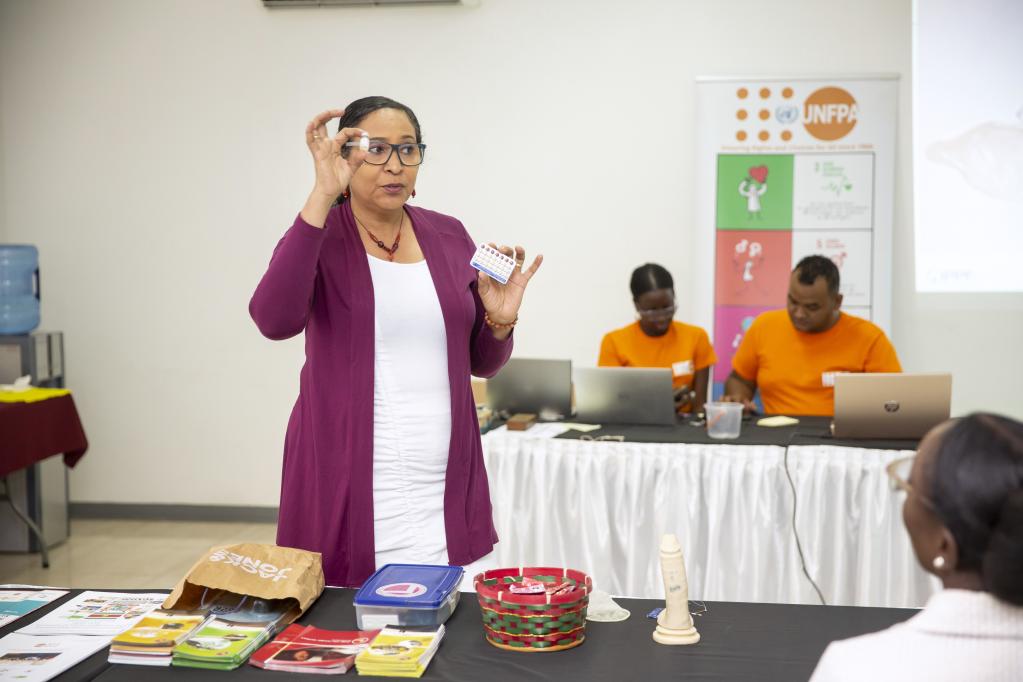
Story
28 March 2024
Inaugural Global Migration Film Festival in Suriname: Building Human Connections and Understanding
The International Organization for Migration (IOM) organizes this Festival globally, to build understanding and humanize migration through film and video. The goal of the GMFF is to entertain, inform, educate, and stimulate discussion. In Suriname, four short Caribbean films were screened - "Passage", "Over the River Chronicles: A Vincentian Cassava Story", "Doubles with Slight Pepper", and "Auntie". The films dealt with various topics such as migrant smuggling and death at sea on one hand, and Caribbean food and culture on the other. Jan- Willem Wegdam, Project Lead at IOM Suriname said he was happy to organize the event for the first time in Suriname. “Our goal was to gather the different cultural groups in Suriname and create some awareness of the common experiences of migration through film.” He wishes that the Festival will encourage more empathy and unity among communities in Suriname and elsewhere. The first movie "Passage" told a tragic story of irregular migration from Haiti and led to thought-provoking discussion with the Bahamian film-maker Kareem Mortimer. Mortimer chose not to use dialogue but focused instead on potent visual storytelling to establish a deep connection with viewers. The ensuing panel discussion reflected on a quote from the film: "In life, we do not receive what we deserve, we receive what we negotiate". Panelists shared their perspectives, shedding light on challenges faced by the Haitian community in Suriname, including stigma, discrimination, and limited opportunities, while acknowledging the generally supportive environment in Suriname towards migrants. Panelists included Norville Plet Burleson, a social worker and Anne Simon of the Haitian Consulate. The second short film "Over the River Chronicles: A Vincentian Cassava Story", immersed viewers in the vibrant Caribbean culture, beautiful landscapes, rich traditions and customs of St. Vincent and the Grenadines. The audience connected with the film's music, joining in a traditional work song associated with the processing of the cassava root “Farine oh Dampiana, Farine oh Dampiana; Scrape um, grind um, wring out the water; Scrape um, grind um, wring out the water…” Day Two of the GMFF presented films that explored migration, identity and belonging, and the stories of those who stay behind when their family members move to another country, the sense of loss, and dreams of reuniting. "Doubles with a Slight Pepper" combined scenes of warm nostalgia with vivid portrayals of the hard realities of migration. A film highlighted the role of food “Doubles” as a source of comfort and belonging. The Director, Ian Hawthorne explained that his own story inspired the movie. The film, “Auntie”, examined love, loss and self-discovery, through the story of a migrant mother who provides materially, while an aunt raises her daughter "back home”. The effects on the characters are complex. Suriname’s first GMFF used film, dialogue, food, and music to promote understanding across cultures and experiences. The event used diverse Caribbean migration stories in film to create a powerful platform to bring people of different backgrounds together for dialogue, understanding, and to build empathy about migration issues, while honouring the strength of migrants and celebrating the positive impacts that they can have on culture and society. The GMFF was hosted by IOM Suriname with generous support from the US Department of State Bureau of Population, Refugees, and Migration. For more information, contact Jan-Willem Wegdam jwegdam@iom.int
1 of 5
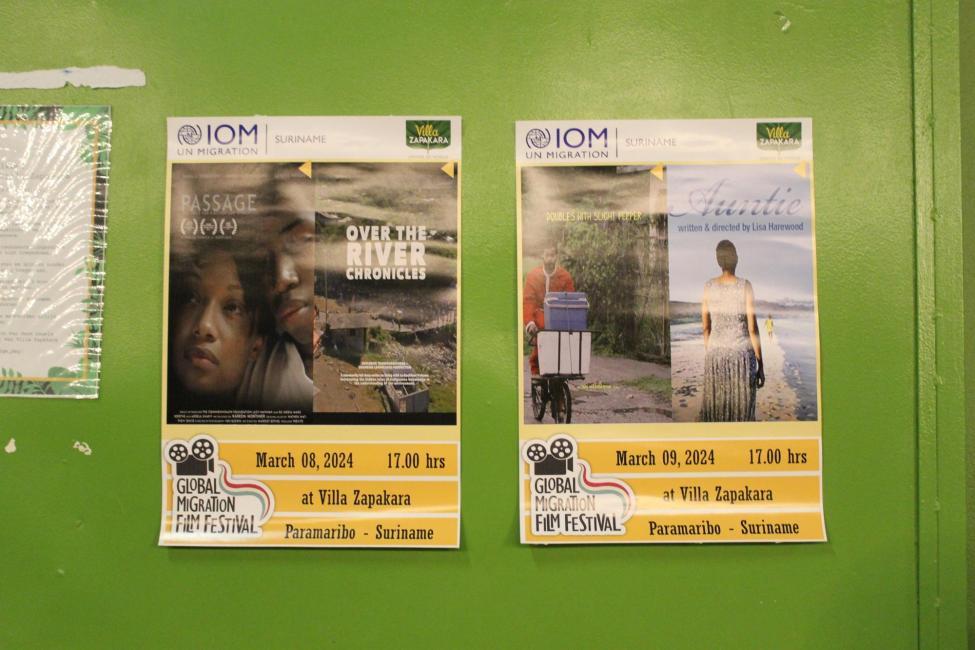
Press Release
09 October 2025
Suriname launches Collateral Support Facility to empower pineapple farmers
Developed by the United Nations Industrial Development Organization (UNIDO), the Food and Agriculture Organization of the United Nations (FAO), the International Labour Organization (ILO), and the United Nations Population Fund (UNFPA), in partnership with the Government of Suriname, the UN Joint SDG Fund, and the Islamic Development Bank (IsDB), the Facility builds on the Horticulture Innovation Hub, created in 2024 as a platform for knowledge sharing and collaboration across Suriname’s horticultural value chains.By linking the Hub with private-sector financial institutions, the Facility bridges the gap between farmers and banks, creating new opportunities for inclusive agricultural growth in Suriname.Empowering Farmers with Inclusive FinanceAt the launch event in Paramaribo, the first six farmers formally applied for loans, an immediate demonstration of the Facility’s potential to transform Suriname’s pineapple sector.Minister of Agriculture, Animal Husbandry and Fisheries Mike Noersalim emphasized: “One of the biggest challenges for farmers is financing investments to expand and modernize production. For Indigenous producers in particular, accessing loans is difficult because communal lands cannot be used as collateral. This Facility, made possible through the joint efforts of our partners, is a true breakthrough.”Maureen Badjoeri, CEO of Trustbank Amanah, selected as the partner bank following a market engagement exercise, added: “The Facility paves the way for modernization and growth in the agricultural sector, with a special focus on pineapple cultivation. We are proud to support farmers in seizing these new opportunities.”Building Strong PartnershipsThe Facility was developed under the Joint Programme (JP) “Sustainable pineapple value chain development in Suriname”, funded by the UN Joint SDG Fund with additional support from the Islamic Development Bank (IsDB). The Programme is implemented by UNIDO, FAO, ILO, and UNFPA as part of the broader Agrifood Systems Transformation Accelerator (ASTA).Minister of Foreign Affairs, International Business and International Cooperation Melvin Bouva underlined the sector’s evolution: “The story of the Surinamese pineapple is a story of transformation. Not long ago, our pineapple sector was small, fragmented, and limited to local consumption. Today, thanks to the ASTA programme, we are taking the step from survival to sustainability; from traditional practices with limited markets to an organized, innovative, and – hopefully in the near future – export-oriented value chain.”On behalf of the UN agencies, Dejene Tezera, Director of Agribusiness and Infrastructure Development at UNIDO, highlighted the broader vision: “This is not only about pineapples. It is about inclusive agribusiness and financial freedom—empowering Indigenous groups, tribal people, and farmers with the skills and independence to thrive. Looking ahead, we must focus on value addition, agribusiness development, and expanded market access so Suriname’s pineapple sector can evolve from a national success into a competitive regional and global brand.” Scaling Up for the FutureLooking ahead, the focus is on scaling up the transformation, ensuring that the programme is reinforced by sustainable investment. The UN Joint SDG Fund, which funds the programme, transcends traditional project-based approaches, instead catalyzing systems transformation for key SDG priorities.As of 2025, the Fund has mobilized a total of US $430 million from 17 Member States since 2019, unlocking $6 billion for SDG financing, impacting over 200 million people across 125 countries, including Suriname.In a recorded message, Lisa Kurbiel, Head of the UN Joint SDG Fund, underscored the importance of further investment: “The Joint SDG Fund is proud to have taken the first step by financing this project. But this is only the beginning. We thank the Islamic Development Bank and call on other donors and international financial institutions to join us in scaling up—focusing on value addition, market access, and cross-cutting priorities such as women’s empowerment and labor rights.”Salah Jelassi, IsDB Director of Operations for the GCC, Yemen and South America, echoed this commitment: “The Islamic Development Bank is proud to contribute to Suriname’s agricultural transformation. By supporting the Collateral Facility, we are helping farmers access finance, build resilience, and secure a sustainable future.”A Milestone for Suriname’s Agricultural TransformationThe launch of ASTA Suriname’s Collateral Support Facility, developed under UNIDO’s technical leadership and jointly implemented with FAO, ILO, and UNFPA, in partnership with the Government of Suriname, the UN Joint SDG Fund, and the Islamic Development Bank (IsDB), is a testament to Suriname’s efforts to transform its agrifood systems. By fostering partnerships across government, international organizations, academia, financial institutions, and farmers, the initiative lays the foundation for a dynamic, sustainable, and gender-inclusive pineapple sector with regional and global potential.
1 of 5
Press Release
03 September 2025
United Nations Resident Coordinator and President of Suriname Reaffirm Partnership for Sustainable Development
Discussions centered on joint priorities, including institutional strengthening, education, digitalization, and expanding access to health services across the hinterland and coastal areas. President Simons shared her vision for strong and inclusive institutions, with particular emphasis on decentralization, strengthening of institutions and advancing health system reforms. UN Resident Coordinator Ms. Kazana outlined the UN system capacities and specialized UN agency contributions, under the Multi-Country Sustainable Development Cooperation Framework (MSDCF) 2022 - 2026, both in Suriname and across the Caribbean. The meeting also addressed Suriname’s global leadership on climate change. As one of the world’s few carbon-negative countries, Suriname plays a unique role in advancing global climate action. President Simons and Ms. Kazana discussed the importance of safeguarding Suriname’s vast forests and coastal ecosystems. Both parties emphasized that preserving biodiversity, investing in nature-based solutions, and supporting the livelihoods of communities are essential to long-term resilience. The President also shared her perspective and vision for the engagement of the Indigenous and Tribal People of Suriname. The UN Resident Coordinator underlined the importance of the land rights of the ITPs which is an issue always coming up prominently in the human rights fora. The discussions also looked ahead to Suriname’s active participation in the upcoming United Nations General Assembly (UNGA) in New York in September. President Geerlings-Simons will address the Assembly on 23 September during the opening of the General Debate, and take part in a series of high-level thematic meetings, further amplifying Suriname’s voice on the global stage and contributing to multilateral cooperation and solutions that work for Small Island Developing States. One of key issues that will be discussed in New York is the need to rapidly advance the reform of International Financial Institutions and deliver on the promise of the ABAS commitments in 2024 and the Financing for Development discussions in Sevilla in 2025. In addition to the meeting with the President, the UN Resident Coordinator met also with H.E. Vice President Gregory Rusland and H.E. Melvin Bouva, Minister of Foreign Affairs, International Business and Cooperation. She also held sectoral discussions with the Ministers of Education, Science and Culture; Health, Welfare and Labour; Land Policy and Forest Management; and Social Affairs and Housing. These engagements underscored the UN’s close collaboration with Suriname’s leadership across multiple sectors.Building on this week of constructive dialogue, the United Nations in Suriname will continue working hand-in-hand with the Government and people of Suriname to accelerate progress on the Sustainable Development Goals and ensure that no one is left behind.
1 of 5
Press Release
22 July 2025
Voluntary National Reviews 2025
The 2025 Voluntary National Review (VNR) showcases the progress made across all 17 Sustainable Development Goals (SDGs).Full Article: Suriname VNR 2025
1 of 5
Press Release
27 May 2025
President Santokhi Endorses ASTA Pineapple Project as Model for Sustainable Rural Development in Suriname Matta, Suriname
A Collaborative Vision for the Future of Pineapple CultivationThe President was welcomed by the ASTA and the Horticulture Innovation Hub’s team as well as the Basja Cyrell Sabajo, local leader and trial farmer, and attended an official ceremony alongside key stakeholders. The Horticulture Innovation Hub’s Director Mr. Swami Girdhari presented the project’s objectives and progress, followed by remarks from Ms. Maitrie Jagroep, Chair of the Hub Board; Ms. Elizabeth Bradley, Director of BIBIS; and Minister of Agriculture Mr. Parmanand Sewdien.In his keynote address, President Santokhi praised the project’s integrated approach, which unites local communities, government institutions, and international partners in a common mission.“With this project, you can earn more. Your village and children will progress,” he stated, underscoring the initiative’s potential to drive income generation, food security, and rural opportunity.The visit included a guided tour of the trial field, where the ASTA and the Horticulture Innovation Hub’s Agronomist Ms. Hemwatie Goeptar explained the project's key innovations: a new agronomic model, results from the AFI (Artificial Flower Induction) trials, and the bio-factory model for organic input production. These tools form the backbone of a sustainable production system tailored to the Surinamese context, offering farmers a low-cost, climate-resilient model for high-quality pineapple cultivation.Minister Sewdien reinforced the urgency of developing crops such as pineapple which are affordable, climate-smart, and scalable, noting the project's alignment with national food security goals and rural development strategies.A Project Already Delivering ResultsThe Presidential visit also highlighted the tangible outcomes already emerging from ASTA’s early implementation. After the formal proceedings, stakeholders had the opportunity to observe the field model in action and interact with local farmers. Trial farmer Mr. Cyrell Sabajo sold his organically grown AFI pineapples during the event, sparking interest from a diverse range of visitors — including representatives from Indigenous communities, input suppliers, hospitality buyers, and agri-processors.Their engagement showcased the project’s commercial potential and its role in connecting smallholder producers to higher-value markets, while remaining rooted in local leadership and traditional knowledge.High-Level Attention Underscores Strategic ImportanceThis visit follows a recent high-level field mission on March 21, 2025, by UN Resident Coordinator Joanna Kazana and Ambassador Cristina Pérez of Spain, the latter representing the largest donor to the Joint SDG Fund. Their joint visit to Matta reinforced the global relevance of the project and Spain’s interest in further supporting its expansion. Both visits reflect the growing recognition of ASTA not only as a local innovation, but also as a replicable model for inclusive, climate-resilient agriculture in the region.About the ASTA Pineapple ProjectThe Agrifood Systems Transformation Accelerator, a global joint initiative of FAO and UNIDO, is implementing the ASTA Pineapple Project in Suriname, together with ILO and UNFPA, as multi-stakeholder initiative co-funded by the Joint SDG Fund and implemented in close collaboration with Indigenous communities, governmental authorities, private actors, and technical experts. It focuses on creating sustainable supply chains through improved agronomic practices, farmer-owned input and marketing systems, enhanced value addition through processing and product diversification, and a dedicated Horticulture Innovation Hub to coordinate services and amplify scale beyond the project’s scope. By supporting traditional farmers to innovate without losing their cultural and ecological roots, ASTA is paving the way for a new generation of agricultural development in Suriname — one that is equitable, resilient, and community-led.
1 of 5
Press Release
02 May 2025
Presentation of National Migration Policy Plan to Minister Ramdin
The interministerial committee, established in 2023 by Minister Ramdin, consists of representatives from various ministries: BIBIS, Home Affairs, Labor, Employment and Youth Affairs, Justice and Police, Social Affairs and Housing, and Education, Science and Culture. In addition, the Directorate of National Security (DNV), the Public Prosecution Service and the Immigration Service also participate.Full article can be read https://gov.sr/overhandiging-nationaal-migratiebeleidsplan-aan-minister-ramdin/?fbclid=IwY2xjawKFxIpleHRuA2FlbQIxMABicmlkETFqU0p1VUtwcDRjTVdyNzl2AR4iLfBXOM5-hp4jvfbv2M1BzYlQKOGIskWPzDJt-cmSzJjIgncoEgDW42_xOA_aem_UA6CJxyc6JKk3Ov2Howb0g#
1 of 5
Latest Resources
1 / 11
Resources
09 October 2025
Resources
20 September 2023
Resources
19 September 2023
1 / 11

